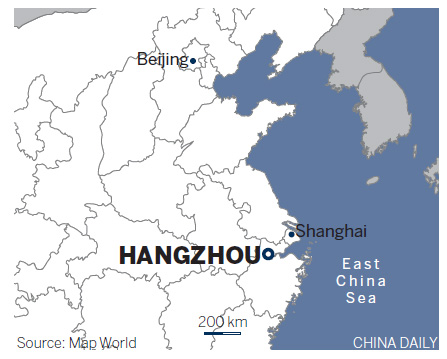Fast-growing city tries to unlock gridlock
Updated: 2010-12-17 13:09
By Shi Jing (China Daily European Weekly)
There were still too many complaints about traffic congestion even though much had been done to unlock the gridlock.
|
|
In September this year, the government stopped issuing new private number plates after the total of new cars matched the 2009 figure, but despite this measure, traffic seems to be as bad as ever. In 2006, the capital in Zhejiang province tried to introduce congestion charges, similar to those which helped alleviate London's traffic burden, but this plan also failed.
"Hangzhou's motorization and urbanization pace is so fast that it's difficult for local transportation to keep up with public's expectations," said Wang Feng, a key co-author of the 2008-2012 Hangzhou Comprehensive Transportation Planning Report.
Although efforts by the city government have produced some results, Wang said the government has extensive plans to improve transportation systems and its roads in a bid to cut travel times for commuters and tourists.
Wang said one necessary goal is to encourage more people to use public transportation, which included public bicycles and the Bus Rapid Transit (BRT), a system that involves express buses making fewer stops.
Hangzhou was the second Chinese city after Beijing to introduce the BRT system and since its implementation in 2006 another two BRT lines have been added.
The BRT Line 1, the longest BRT line in China, connects the Xiasha Higher Education Park to the Huanglong Bus Central Station.
The 28-kilometer route used to take 90 minutes by regular bus, but now only 50 minutes on a BRT bus.
The traffic problem in Hangzhou, as in many other fast-growing mainland cities, is created mainly by the drastic increase of private cars, Wang and other city planners said.
"Our goal is to have 40 percent of all commuters using public transportation by 2012, up from the current 25 percent," Wang said.
"The government is also working on a new comprehensive BRT system designed for long-distance travel."
Wang's comments were echoed by Huang Kunming, Party chief of Hangzhou.
"A complete BRT system, together with metro lines, will play a key role in the entire transportation system of Hangzhou in the future," said Huang in a government meeting on Hangzhou's traffic this May.
Hangzhou's future metro subway lines will be a key in alleviating poor traffic conditions.
E-paper

Ear We Go
China and the world set to embrace the merciful, peaceful year of rabbit
Preview of the coming issue
Carrefour finds the going tough in China
Maid to Order
Specials

Mysteries written in blood
Historical records and Caucasian features of locals suggest link with Roman Empire.

Winning Charm
Coastal Yantai banks on little things that matter to grow

New rules to hit property market
The State Council launched a new round of measures to rein in property prices.

